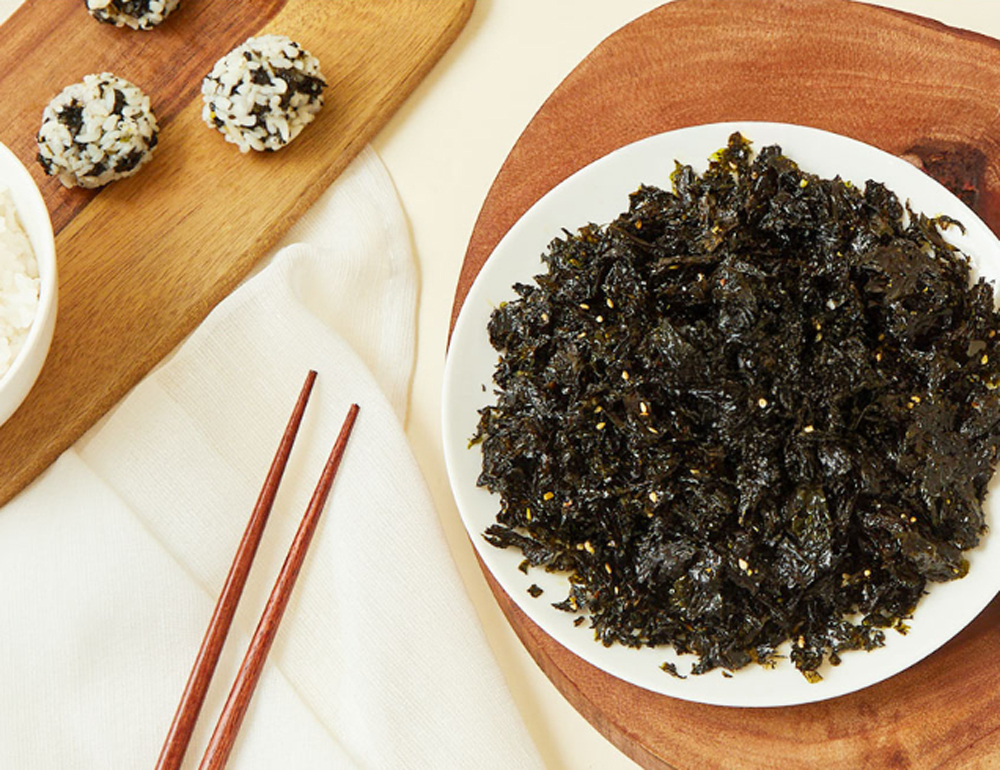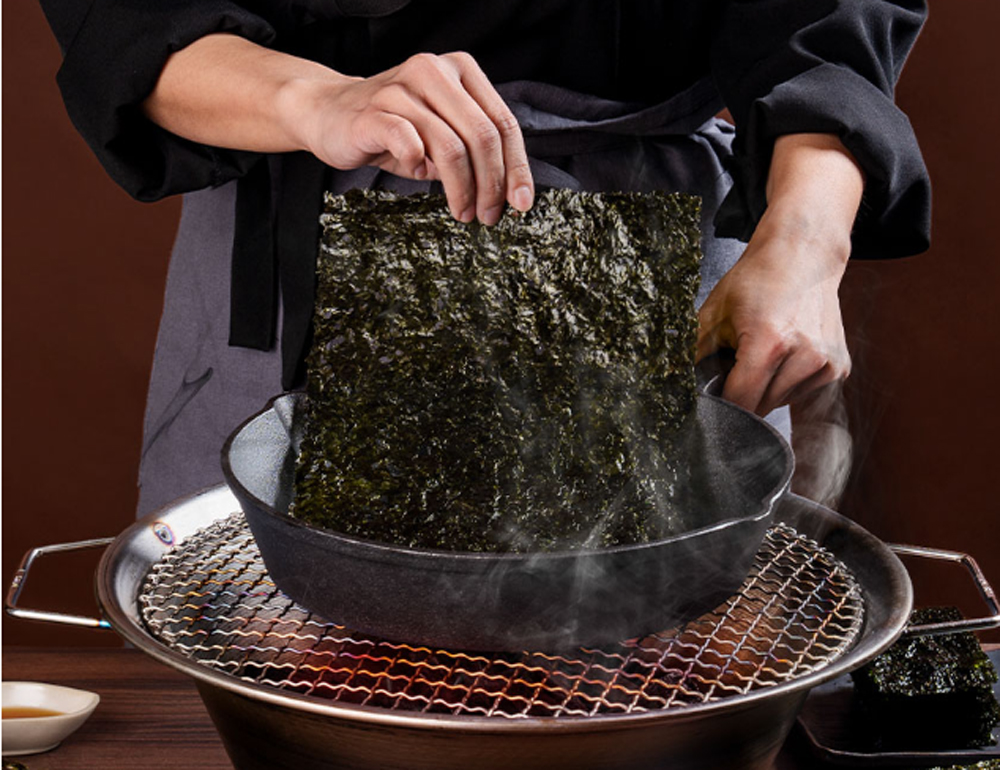Seasoned Seaweed Flakes (Gimjaban)
The Seasoned Seaweed Flakes, known as Gimjaban, are a traditional Korean side dish made by finely crushing roasted seaweed and stir-frying it with sugar, salt, sesame oil (or perilla oil), and roasted sesame seeds. It’s known for its crispy, savory, nutty, and slightly sweet flavor, making it a perfect accompaniment to rice. Often called a “bapdodŭk” — literally “rice thief” — it’s so delicious that it makes you eat more rice.
Key Features
- How It’s Made: Dried seaweed is roasted until crisp, then finely crushed and seasoned with oil, salt, and sugar before being lightly stir-fried over low heat.
- Flavor and Texture: Combines a crispy texture with a balanced mix of savory, nutty, salty, and sweet flavors that appeal to people of all ages.
- Uses: Commonly enjoyed as a side dish with rice, but also used as an ingredient in rice balls (jumeokbap) or as a topping for noodles, soups, and salads.
- Name Origin: The term “jaban” comes from “jaban (좌반)”, meaning “a dish that accompanies rice,” reflecting its role as a flavorful side to complement a meal.

History of Seasoned Seaweed Flakes (Gimjaban)
The earliest mention of gimjaban appears in Siui Jeonseo (circa 1800), a traditional Korean cookbook. It describes a method of layering multiple sheets of seaweed, seasoning them, drying them, and then slicing them for consumption.
- Expansion of the “Jaban” Category: The term “jaban” does not simply refer to salty foods. It broadly denotes side dishes that are seasoned, stir-fried, or preserved for serving alongside rice. Gimjaban falls under this category and has developed into one of Korea’s most beloved savory and mildly salty side dishes.
- Appearance in Modern Cookbooks: Gimjaban was also featured in the 1924 culinary text Joseon Mussang Sinsik Yori Jebeop (The New Cooking Methods of Joseon), which helped popularize its preparation method across the country.
- Today: Gimjaban remains a popular Korean side dish enjoyed with rice. In recent years, it has been commercially produced in a wide variety of flavors and textures, making it easily accessible and loved by people of all ages.
Additional Information
- Ingredients: Seaweed is stir-fried with oil, salt, sugar, and sesame seeds to create its signature savory-sweet flavor.
- Varieties: Gimjaban can also be made using softened or aged seaweed, resulting in a chewier texture in some versions.
- Characteristics: Known for its crispy texture and balanced salty-sweet flavor, gimjaban is both simple and deeply satisfying—a perfect complement to any meal.

How to make a rice ball with seaweed flakes?
Preparation items:
Bowl of rice
Tuna Fish (a can of tuna)
Mayonnaise, Sesame oil, Salt
- Mix Mayonnaise with Tuna fish
- Put some salt in the rice
- Put a little bit of Sesame oil
- Mix them
- Make a round shape in the rice ball
- Then, close the round shape
- Mix the rice ball with the seaweed flakes

Leave a Reply